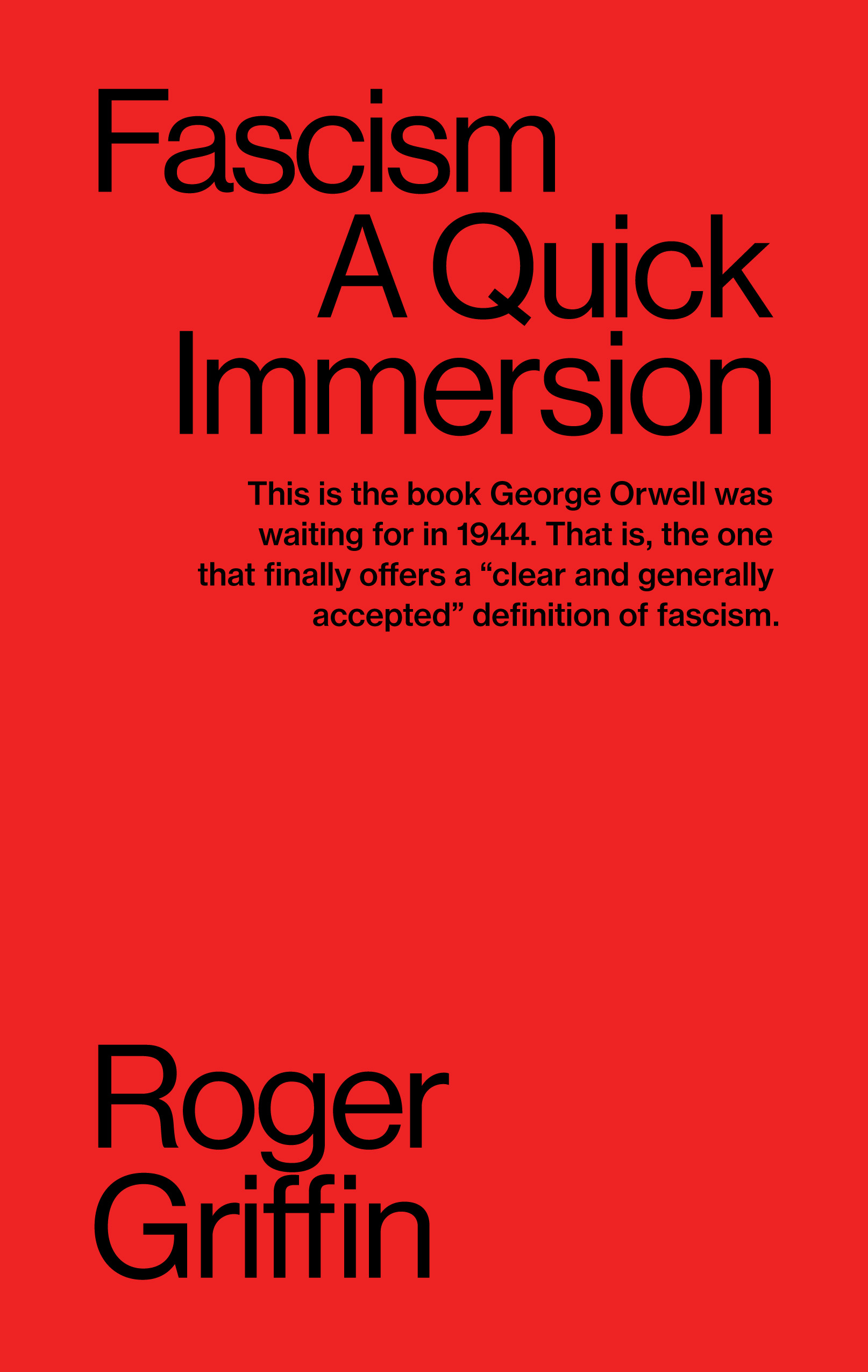

Fascism
Quick immersions
Roger Griffin has given us a masterful, concise guide to one of the most complicated ideological conundrums to emerge from the 20th-century. By analyzing fascism as a political ideology whose mythic core in its various permutations is a regenerative form of populist ultranationalism, Griffin provides us with the critical means to evaluate both the history of fascism’s global appeal and its ominous, contemporary manifestations . Mark Antliff, Anne Murnick Cogan Professor, Duke University
This deceptively short book, written by the world’s leading authority on fascism, shows how a cogent definition based on serious engagement with its devastating inter-war history allows it to be distinguished from other forms of today’s right-wing politics. It thus provides much needed clarity to the terms we use when assessing the mounting dangers to a truly liberal democracy. David Roberts, Emeritus Professor at the University of Georgia.
With a droll yet direct approach Griffin sweeps away the cobwebs currently obscuring the concept of fascism. His discussion of ‘Four key processes affecting post-war revisions of fascism’ is alone worth the purchase price of this remarkable book. Chip Berlet
Roger Griffin is among the most influential scholars of fascism. This book makes his important ideas accessible to a much larger audience. It brings needed clarity to a politicized, contentious, and often confusing subject. George Hawley. Associate Professor. Department of Political Science. University of Alabama.
What's this book about? Roger Griffin' explanation: https://bit.ly/3GHmcZt
Seventy-five years ago, George Orwell complained that there was no accepted definition of fascism, lamenting that “we shall not get one — not yet, anyway.” In the media, the blogosphere, and in public commentary, little has changed. But for those intrigued and infuriated by the word, this book brings welcome news as it takes stock of the confusion surrounding the term before introducing the succinct but powerful working definition that now serves as the premise of the flourishing international and multilingual field of comparative fascism. This definition is then applied to providing a survey of the ‘fascist era,’ showing how it helps explain the initial success of Fascism and horrific destructive power unleashed by the Third Reich, even while so many movements withered on the vine or became Nazi puppets.

Roger Griffin is Emeritus Professor at Oxford Brookes University (UK). Having obtained a First (Oxon.) in languages, his research eventually led to the formulation of an original definition of fascism in his DPhil (Oxon) which is now widely accepted as 'standard' in comparative fascist studies. His major monographs are The Nature of Fascism (Pinter, 1991), Modernism and Fascism . The Sense of a Beginning under Mussolini and Hitler (Palgrave, 2007) and Terrorist's Creed. Fanatical Violence and the Human Need for Meaning (Palgrave, 2012). His current research projects are to explore the role played by our 'divisible' selves in political violence and the social and psychological factors determining social breakdown and resilience.
Blurb:
This is the book that George Orwell was waiting for in 1944. The one that finally offers a 'clear and generally accepted' definition of fascism.

